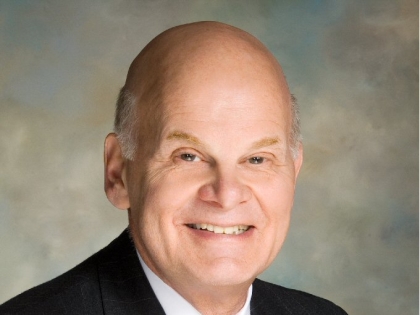
Saland’s Plan to Eliminate the Mta Payroll Tax and Increases on Motor Vehicle Registration Fees
Stephen M. Saland
May 31, 2012
MTA’s spending to be capped: Stop them in their tracks
Senator Steve Saland (R,I,C – Poughkeepsie) introduced legislation this week to eliminate the MTA payroll tax, roll back the supplemental registration and license fees on motor vehicles and reduce scheduled MTA fare increases.
In 2009, Saland and his Senate Republican colleagues railed against the MTA bail-out plan that imposed a job-killing payroll tax on employers in the MTA region and increased motor vehicle license and registration fees. Vowing to right the wrong supported by the previous State Democrat leadership, the Senate Republicans successfully fought to reduce the payroll tax on 80% of businesses and all schools and libraries.
Senator Saland, a vocal critic and staunch opponent of the egregious payroll tax, has crafted a legislative remedy to eliminate the payroll tax, roll back the increased registration fees and reduce the proposed fare increases by controlling the growth of the MTA operating budget.
“The State has shown by example that spending can and should be capped at moderate, reasonable levels. For the last two years, since regaining the Senate Majority, the State Budget has been capped at 2%,” said Saland. “As a result of the recently enacted real property tax cap law, local governments and school districts across the State are operating within constrained spending limits and so should the MTA.”
Since its inception in 1965, the MTA has exhibited a penchant for spending. Over the last several decades, the Metropolitan Transportation Authority budgets have far exceeded the rate of inflation and their unsustainable levels of spending have consistently placed a burden on tax payers by requiring increased state subsidies.
In 2012, the MTA operating budget, excluding increases in debt service, will exceed $13.8 billion. This figure surpasses the operating budgets of the Power Authority; the Port Authority of New York and New Jersey; the Dormitory Authority; the Urban Development Corporation; the Long Island Power Authority; and the New York State Thruway Authority – combined.
In fact, the MTA operating budget exceeds the combined operating budgets of all cities (except NYC); all towns and all villages in the entire state of New York.
“For too long, the MTA has been fiscally irresponsible and poorly managed,” stated Senator Saland. “I have long fought the excessive spending culture of the MTA and we must put the brakes on their exorbitant spending.”
Saland noted, “If the spending limitation called for in this plan had been put in place beginning in 2006, the MTA would have already saved New Yorkers over $6.6 billion!”
Under the Saland bill, the savings achieved by reining in the MTA operating budget, the payroll tax would be substantially reduced for Dutchess, Orange, Putnam and Rockland counties in 2013 and fully eliminated in the Hudson Valley by 2016. The increase imposed on motor vehicle registrations and licenses would be substantially reduced in 2013 and removed from Hudson Valley car owners by 2014 and proposed fare increases would begin to drop in 2013.
“We cannot sit idly by and allow the MTA to operate without constraint. By creating a mechanism which forces them to be fiscally responsible, tax and fee relief and fare reductions are readily achieved by utilizing the revenue generated from the significant savings produced, without compromising the MTA capital budget,” concluded Senator Saland. “It’s all about living within reasonable fiscal parameters – just like every hard working family must do to make ends meet.”
###
Share this Article or Press Release
Newsroom
Go to NewsroomHurricane Sandy Update: Gas Prices
November 5, 2012
Hurricane Sandy Update 11/1/12
November 1, 2012
Hurricane Sandy Update
October 29, 2012
Hurricane Sandy Storm Tracker
October 27, 2012
